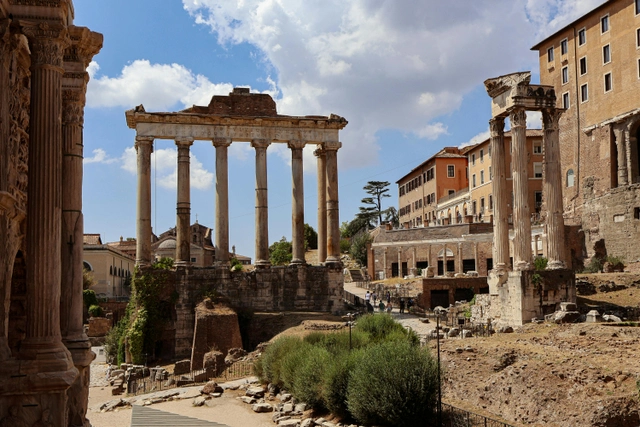Human Civilization
An exploration of the evolution and achievements of human societies
1. Defining Human Civilization
Human civilization refers to the complex societies that have emerged over time, characterized by cultural, political, and technological developments.
- Components of Civilization: Civilizations typically share certain characteristics, including urban development, social stratification, a system of governance, and the use of writing for record-keeping and communication.
- Impact of Geography: Geography plays a crucial role in the development of civilizations. Factors such as climate, topography, and proximity to water sources influence agricultural practices, trade routes, and cultural exchanges.
2. The Birth of Civilizations
The first human civilizations emerged around 10,000 BCE, with agriculture leading to permanent settlements and complex societies.
- Agricultural Revolution: The shift from nomadic lifestyles to settled farming marked the beginning of civilization. This allowed for food surpluses, leading to population growth and the establishment of cities.
- Mesopotamia: The Cradle of Civilization: Mesopotamia, located between the Tigris and Euphrates rivers, is often referred to as the cradle of civilization, where writing, law, and urbanization first flourished.
3. Major Ancient Civilizations
Throughout history, several ancient civilizations have played significant roles in shaping human development, including those in Egypt, Greece, and Rome.
- Egyptian Civilization: The ancient Egyptians are known for their monumental architecture, including the pyramids, and their advancements in writing, mathematics, and medicine.
- Greek Civilization: Ancient Greece is often hailed as the birthplace of democracy and philosophy, producing influential thinkers like Socrates, Plato, and Aristotle.
- Roman Civilization: The Roman Empire, known for its vast territorial conquests and contributions to law, engineering, and architecture, has had a lasting influence on Western civilization.
4. Cultural Developments
Art, literature, and religion have been essential components of human civilization, reflecting societal values and influencing cultural evolution.
- Art and Architecture: Civilizations express their identity through art and architecture. From the cave paintings of prehistoric humans to the Gothic cathedrals of medieval Europe, art has been a vital aspect of culture.
- Religion and Beliefs: Religion has often shaped civilizations, providing moral frameworks and community cohesion. Major world religions like Christianity, Islam, and Hinduism have profound historical impacts.
- Literature and Philosophy: Literature and philosophy offer insights into the human experience, with classic works such as Homer's 'Iliad' and Plato's 'Republic' continuing to influence thought and culture today.
5. Technological Advancements
The evolution of technology has been a driving force behind the growth of civilizations, facilitating communication, trade, and cultural exchange.
- Inventions that Shaped Civilization: Key inventions, such as the wheel, writing systems, and the printing press, have transformed societies, enabling new forms of communication and organization.
- The Industrial Revolution: The Industrial Revolution in the 18th and 19th centuries marked a significant turning point, leading to urbanization, technological innovation, and changes in labor and society.
- Information Age: The rise of the internet and digital technology has revolutionized communication and access to information, creating a global interconnectedness that shapes contemporary civilization.
6. Social Structures
The organization of societies has varied widely, with social hierarchies influencing power dynamics and cultural norms.
- Class Systems: Many civilizations have developed class systems, where individuals are ranked based on wealth, occupation, or social status, affecting their access to resources and opportunities.
- Gender Roles: Gender roles have played significant roles in societal organization, with varying expectations and responsibilities assigned to different genders across cultures.
- Ethnic and Cultural Diversity: Civilizations often consist of diverse ethnic and cultural groups, contributing to rich cultural tapestries but also leading to conflicts and struggles for power.
7. Economic Systems
Economic structures have evolved from barter systems to complex global economies, impacting trade and wealth distribution.
- Barter and Trade: Early economies relied on barter, exchanging goods and services directly, which laid the groundwork for more complex economic systems.
- The Rise of Currency: The introduction of currency simplified trade and led to the development of banking systems, facilitating commerce and economic growth.
- Globalization: In recent decades, globalization has transformed economic relationships, connecting markets and cultures around the world and leading to increased trade and economic interdependence.
8. Political Systems
Political organization has evolved from tribal governance to modern nation-states, shaping power dynamics and civic life.
- Types of Governance: Political systems can vary widely, including democracies, monarchies, and authoritarian regimes, each with distinct structures and processes of governance.
- The Role of Law: Legal systems are foundational to maintaining order within civilizations, providing frameworks for justice, rights, and social contracts.
- International Relations: The relationships between nations shape global dynamics, influencing trade, diplomacy, and conflicts throughout history.
9. Challenges Facing Civilization
Modern civilization faces numerous challenges, including environmental issues, inequality, and political unrest.
- Environmental Sustainability: Human activities have led to significant environmental degradation, necessitating a focus on sustainability to preserve resources for future generations.
- Social Inequality: Inequality in wealth and opportunities remains a pressing issue, with marginalized groups often facing systemic barriers to advancement.
- Political Instability: Political unrest and conflicts challenge societal cohesion, requiring solutions that foster dialogue, understanding, and cooperation.
10. The Future of Civilization
As humanity progresses, the future of civilization hinges on our ability to innovate, cooperate, and address the pressing challenges of our time.
- Technological Innovations: The advancement of technology will continue to shape human civilization, potentially transforming how we live, work, and interact.
- Global Cooperation: Tackling global challenges, such as climate change and health crises, will require unprecedented levels of cooperation and collaboration among nations.
- Cultural Evolution: Cultural exchange and integration will play vital roles in shaping future societies, fostering understanding and appreciation of diversity.
Summary
- Human civilization encompasses the complex societies formed over time, characterized by cultural, technological, and political developments.
- The first civilizations emerged around 10,000 BCE, with agriculture leading to permanent settlements and social complexity.
- Major ancient civilizations, such as those in Egypt, Greece, and Rome, significantly shaped human history.
- Cultural developments in art, literature, and religion reflect societal values and have influenced civilizations profoundly.
- Technological advancements have driven growth and connectivity among civilizations, particularly in the modern era.
- Social structures, economic systems, and political organizations have evolved, impacting power dynamics and civic life.
- Current challenges include environmental sustainability, social inequality, and political instability, which must be addressed for future prosperity.
References
- - Civilization: A New History of the Western World (Book by Roger Osborne)
- - The Origin of Civilization (Encyclopedia Britannica)
- - The Dawn of Everything (Book by David Graeber and David Wengrow)
- - Ancient Civilizations: A Captivating Guide (Book by Captivating History)
- - Civilization: The West and the Rest (Book by Niall Ferguson)
- - Guns, Germs, and Steel (Book by Jared Diamond)
- - Social Structure: A Social Network Analysis (Book by David Knoke)
- - Capital in the Twenty-First Century (Book by Thomas Piketty)
- - The Origins of Political Order (Book by Francis Fukuyama)
- - Collapse: How Societies Choose to Fail or Succeed (Book by Jared Diamond)
- - Homo Deus: A Brief History of Tomorrow (Book by Yuval Noah Harari)
keywords: human civilization; cultural evolution; historical development.
Partner Suggestion
Top 10 Tips for Starting a Business

